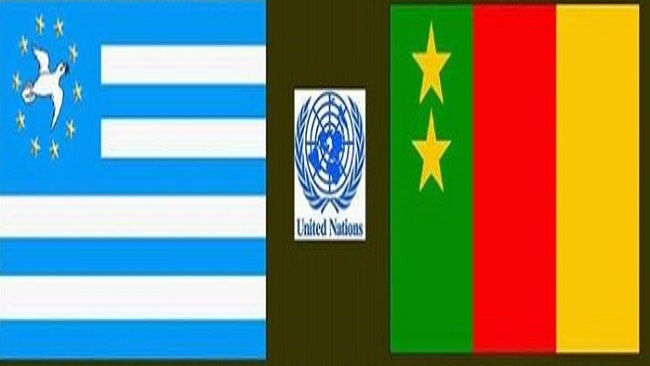European Union says Cameroon must adopt ‘sincere, constructive dialogue’ in Anglophone crisis
The European Union (E.U.) has waded into the recent upsurge of deadly violence in Cameroon’s restive Anglophone regions.
It has subsequently tasked the government to ensure that lives do not continue to be lost as has been witnessed over the last weekend where a number of security officials and civilians have been killed.
Whiles stressing the need for such acts of violence to be punished, the statement of Wednesday February 7, 2018 also reiterated the need for the Cameroon government to initiate sincere and constructive dialogue’ as a means of finding a solution to the Anglophone crisis.
“The European Union calls on all sides to refrain from any act that might exacerbate tensions or incite violence between Cameroonians.
“It remains convinced that sincere and constructive dialogue, following democratic and constitutional procedures, is the only way of finding a lasting solution to the crisis, while preserving unity and peace for all Cameroonians,” the statement read.
The E.U. said it was also concerned about the use of force by security forces in the line of their duties. Reports have indicated that security forces in reprisal attacks have indiscriminately killed civilians – a total of four civilians were said to have died in a security raid.
The statement was, however, mute on the deportation of over 40 separatists from Nigeria early last month. Cameroonian authorities confirmed receiving known leader of the so-called Ambazonia republic Julius Ayuk Tabe and 46 others from Nigeria.
The Anglophone crisis confined to Cameroon’s northwest and southwest regions started as one protesting marginalization from the French – majority part of the country.
After a failed independence declaration in October 2017, the separatists under the Ambazonia banner have began an armed phase of the struggle. It has so far led to deaths of over a dozen security agents.
President Paul Biya is on record to have said dialogue was the only way out of the crisis and that the unity of Cameroon remained non – negotiable. However, there has not been any concrete move in that regard. The United Nations, the United States, United Kingdom and other partners have all advocated the need for dialogue.
Cameroon goes to the polls later this year, incumbent Biya is expected to vie for another term in office after over thirty years in power. The opposition it is believed will field a common candidate in a bid to unseat Biya.
Source: Africa News





